
In 2015, the United Nations passed the Sustainable Development Goals in the Transforming our World: The 2030 Agenda for Sustainable Development. The goals in the “clean water” reflects the great attention paid by the international community to water environment and can be referred to for reference by China for its water conservancy planning in the future. In Beijing, the capital city of China, sewage treatment has a bearing on people’s daily life. To this end, Kaiwen Academy students in Honor biology course and AP art course will take “Dirty Water Project” as one of the themes of project-based learning (PBL) for the semester and conduct cross-disciplinary researches.
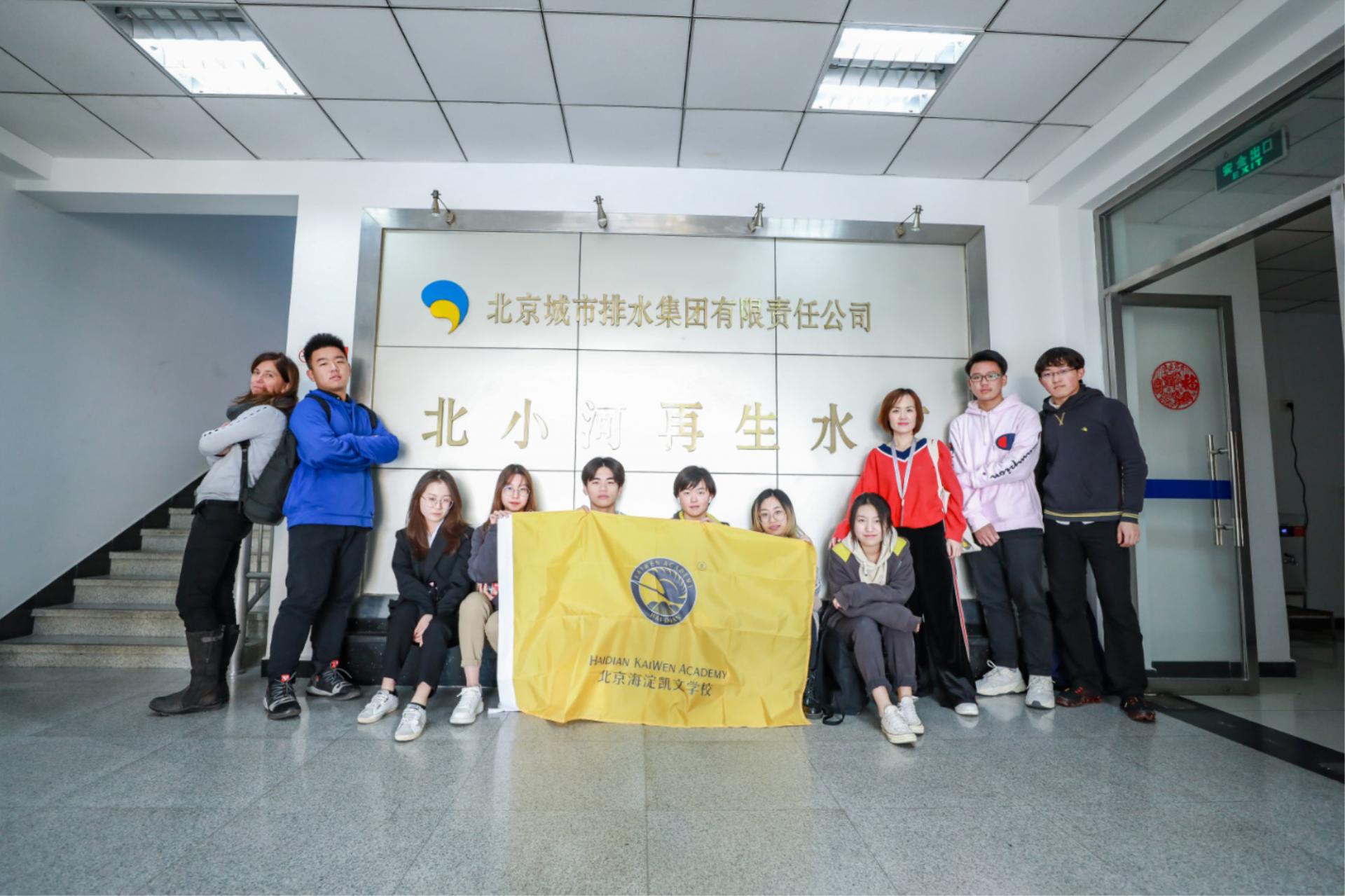
Adopting the National Core Curriculum Standards (NCCS) for visual arts courses in U.S. high schools and the Next Generation Science Standards (NGSS) for life science courses, teachers of Honor biology course and AP art course jointly prepare the classes and guide 11th grade students taking the two courses to collect water samples nearby, process them with electrolysis, filtration and precipitation, use the materials after treatment for artistic creation, write academic papers and set up and update a themed website.
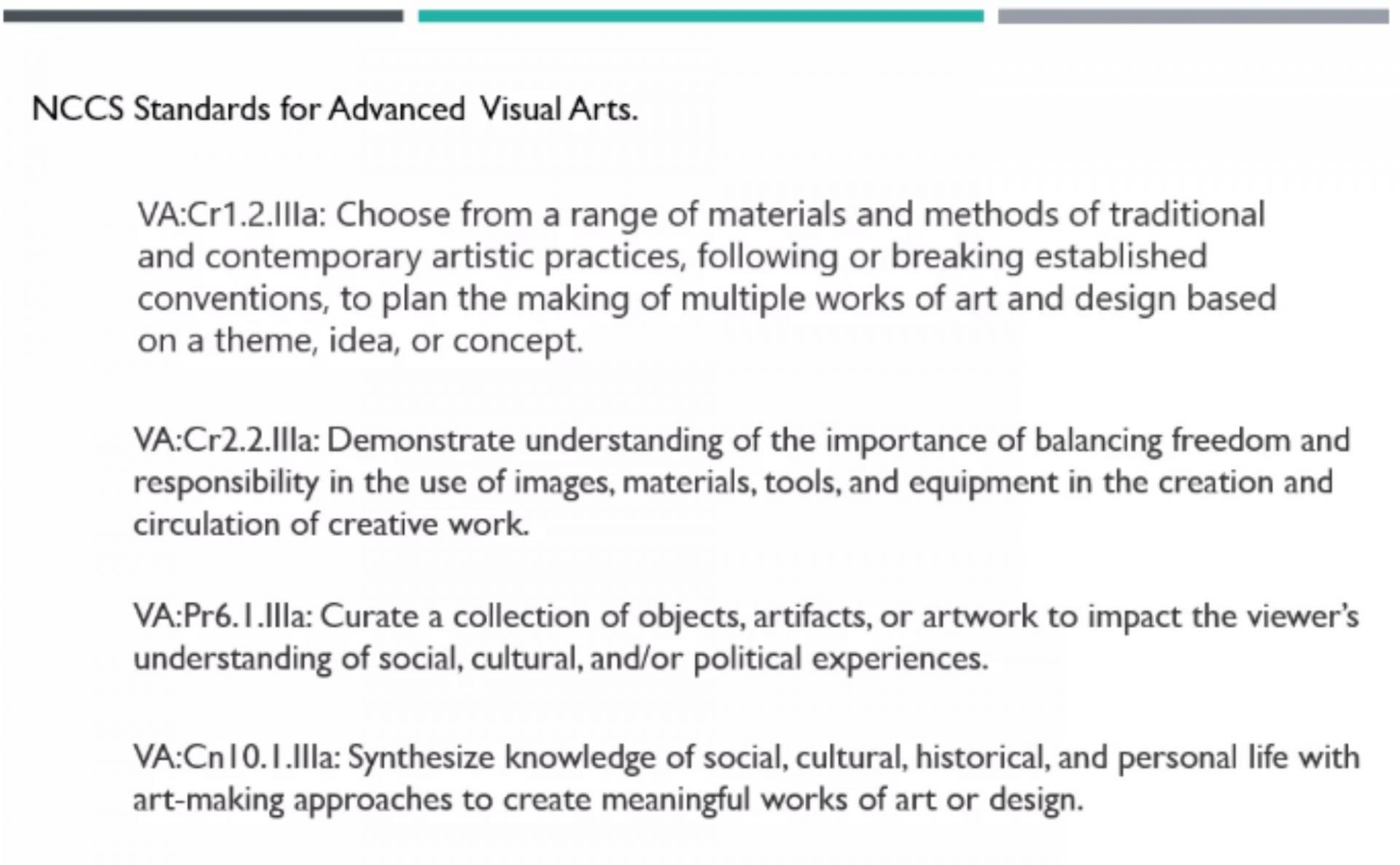
National Core Curriculum Standards (NCCS) for visual arts courses in U.S. high schools
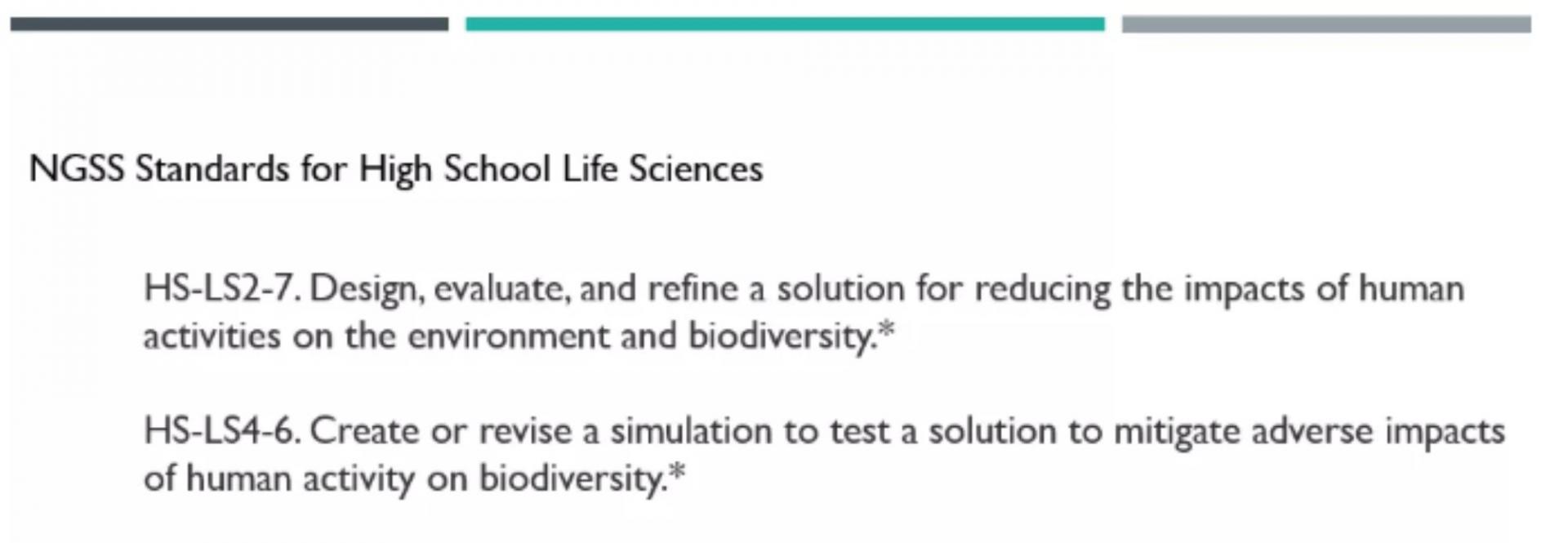 Next Generation Science Standards (NGSS) for life science courses in U.S. high schools
Next Generation Science Standards (NGSS) for life science courses in U.S. high schools
During the process, the students will think over many questions with the acquired knowledge: How to apply knowledge in reality and on the campus of Kaiwen? How to find the optimal solution against water pollution? How to reduce pollution over the environment by mankind? How to contribute to environmental improvement in the community and society…
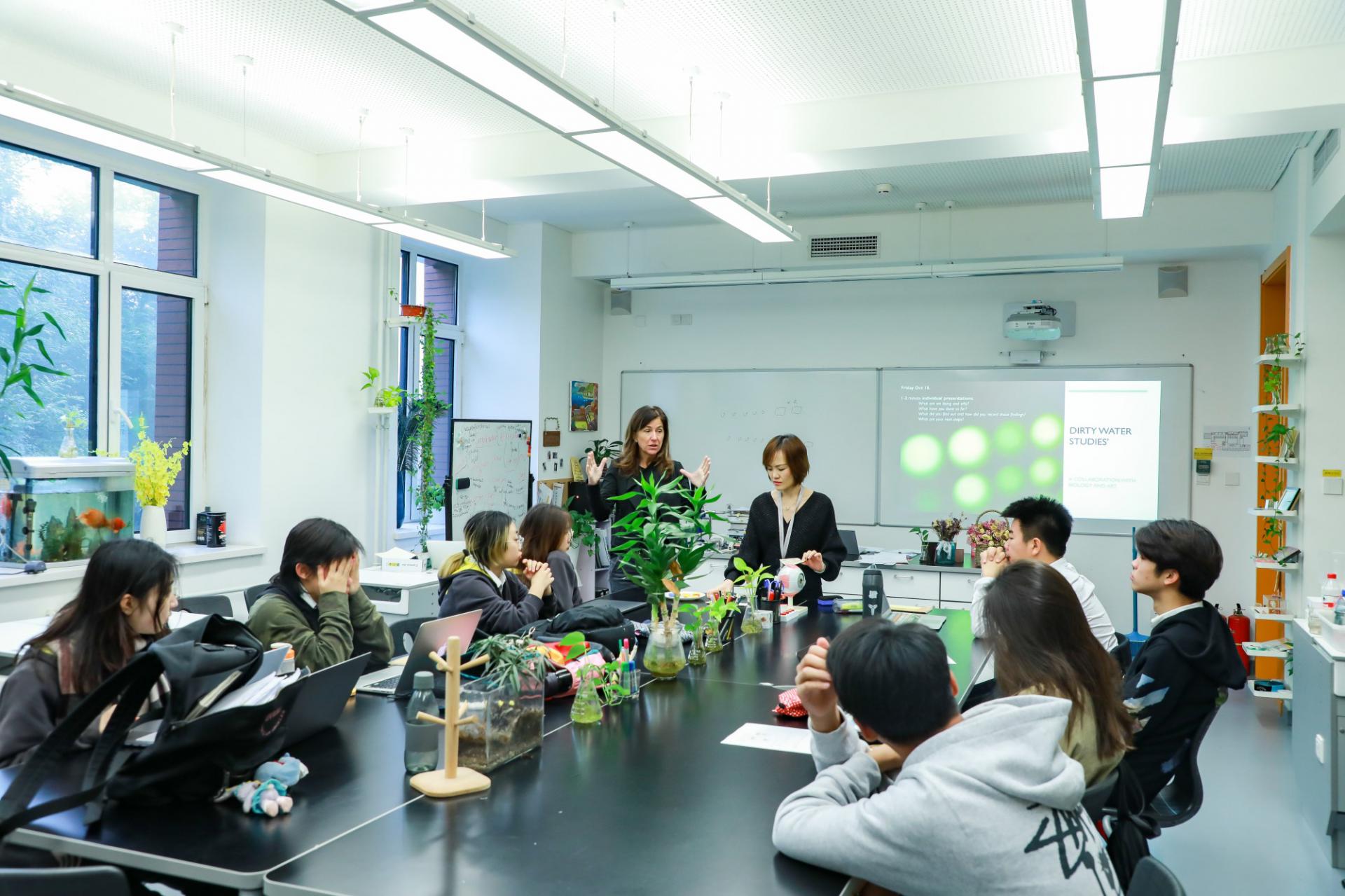
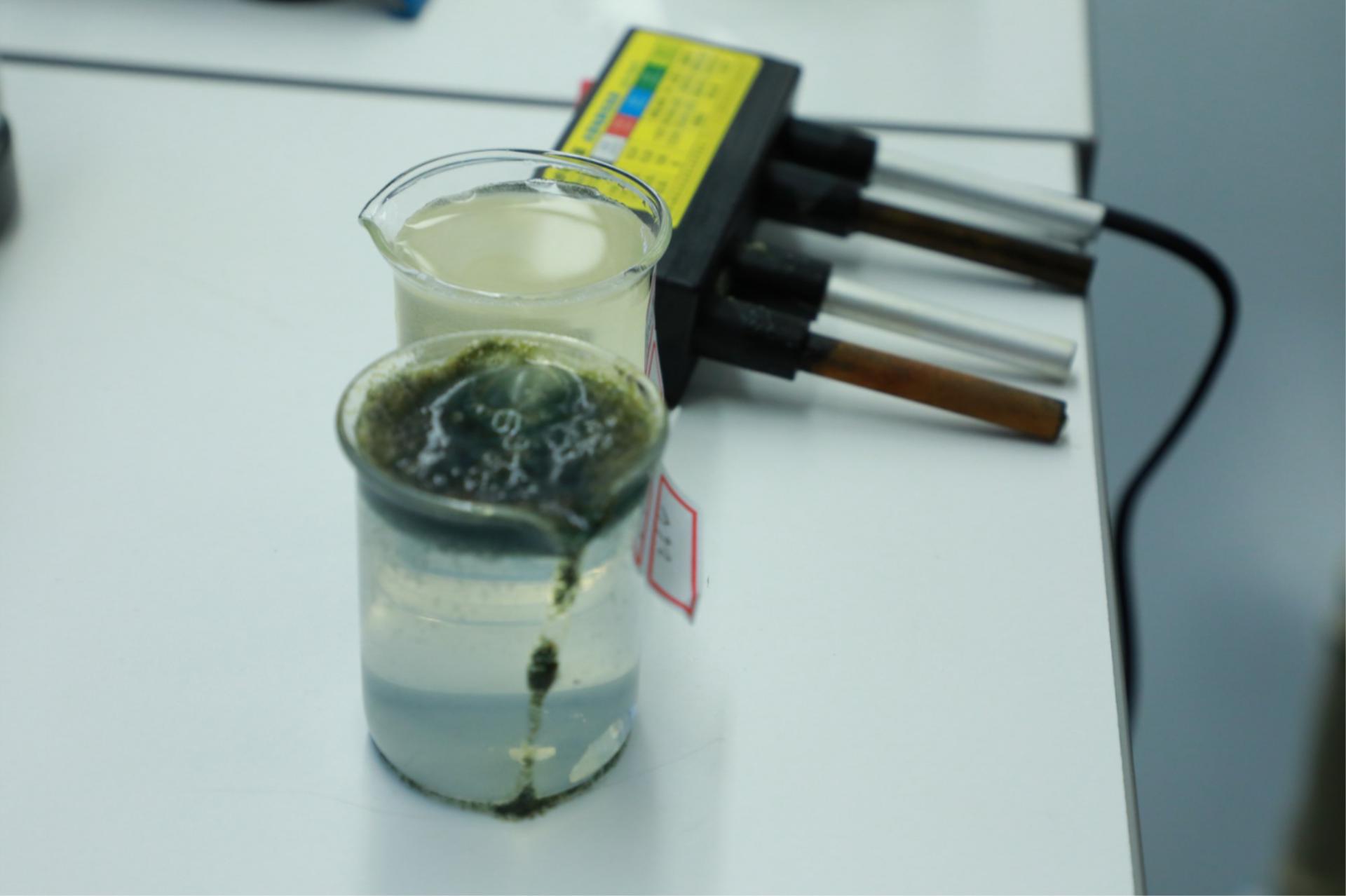
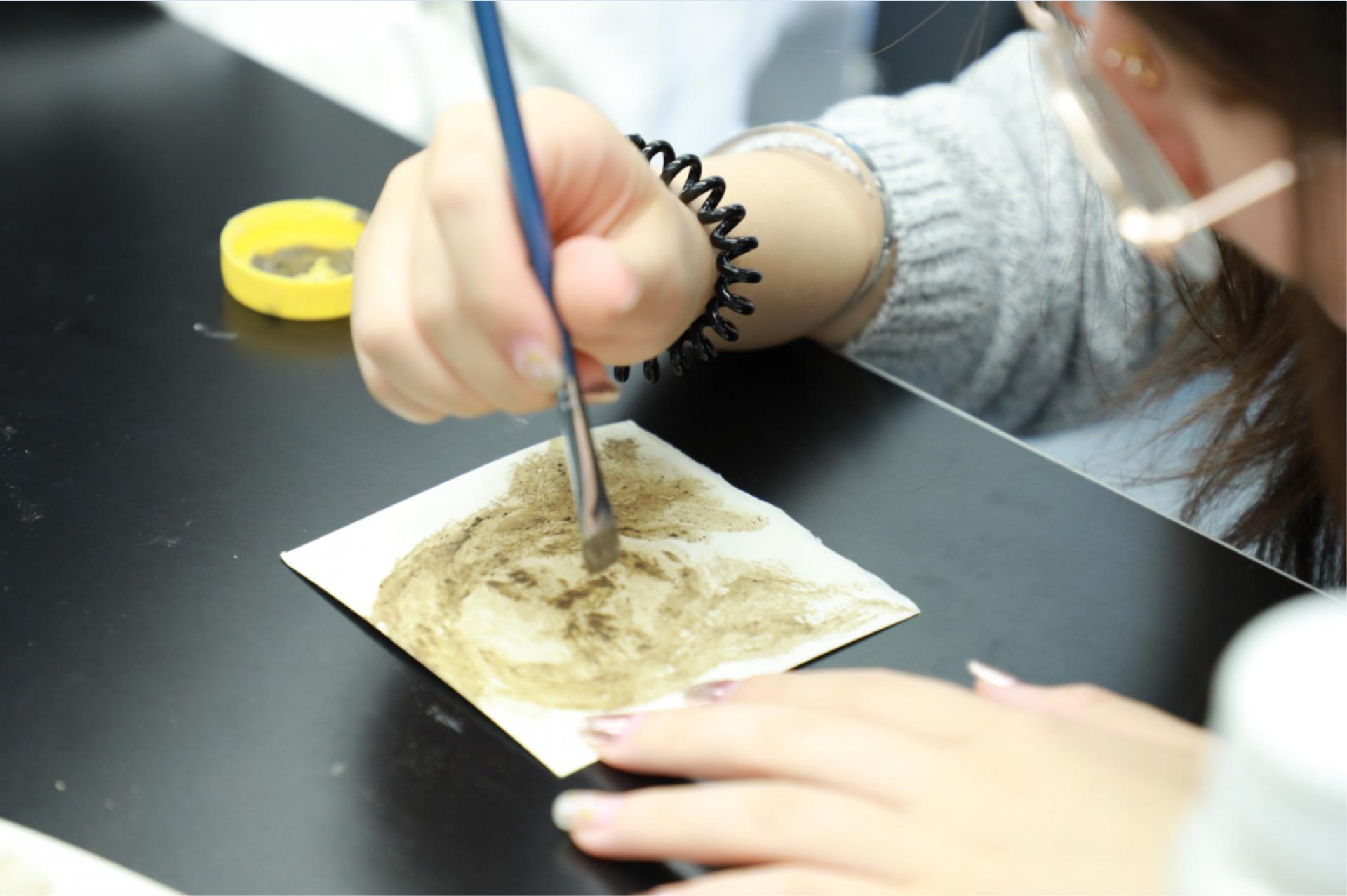
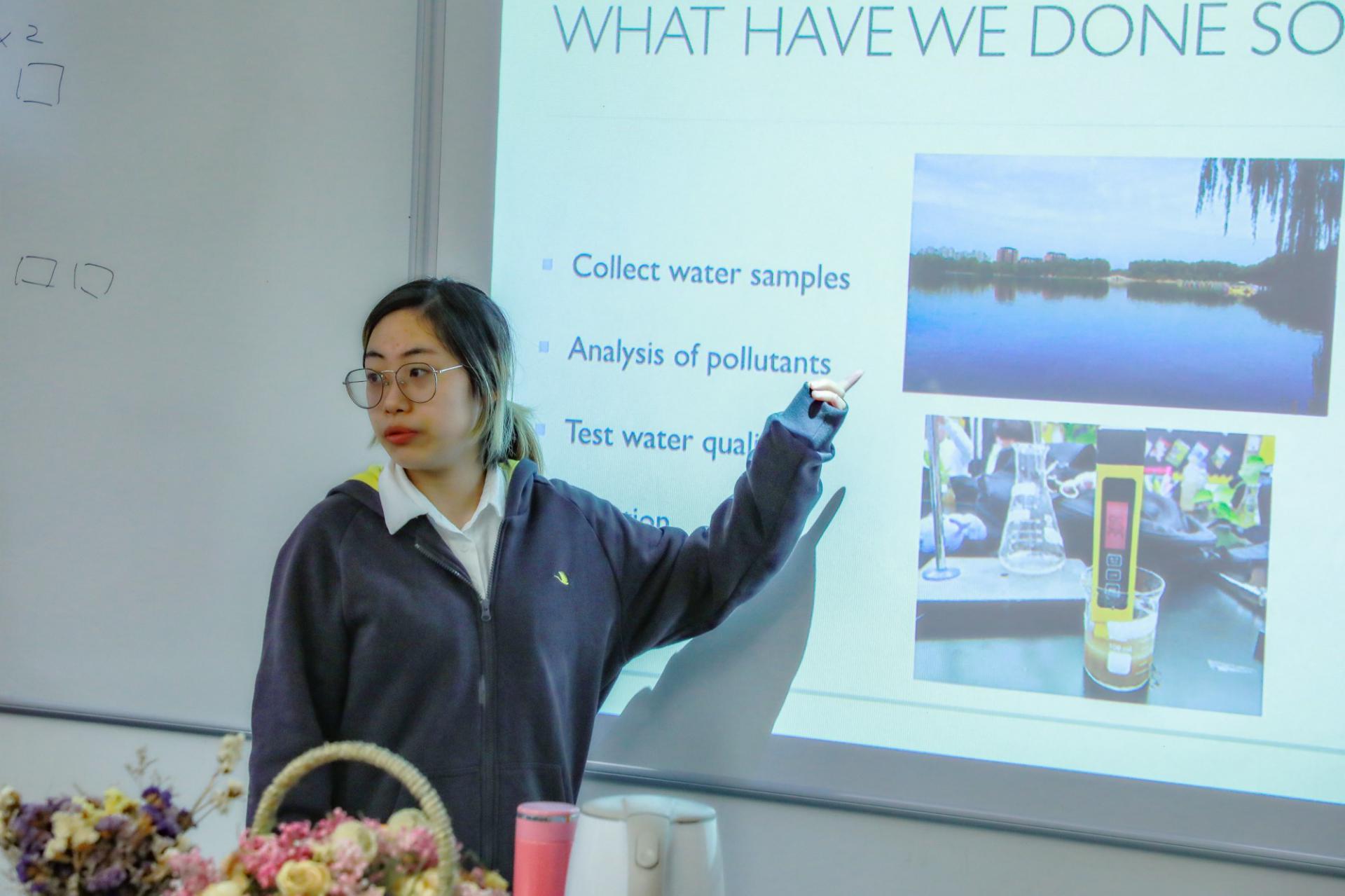
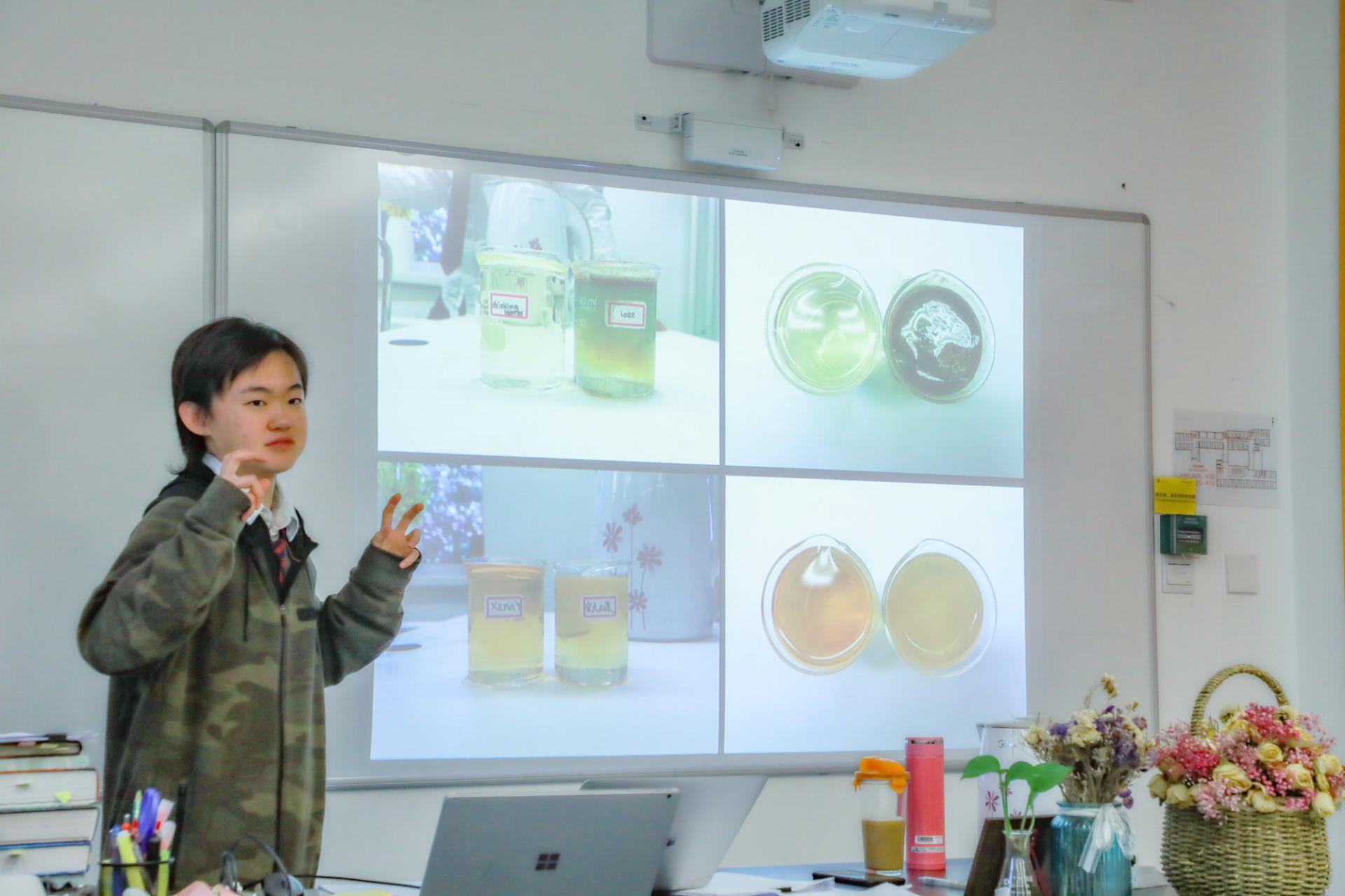
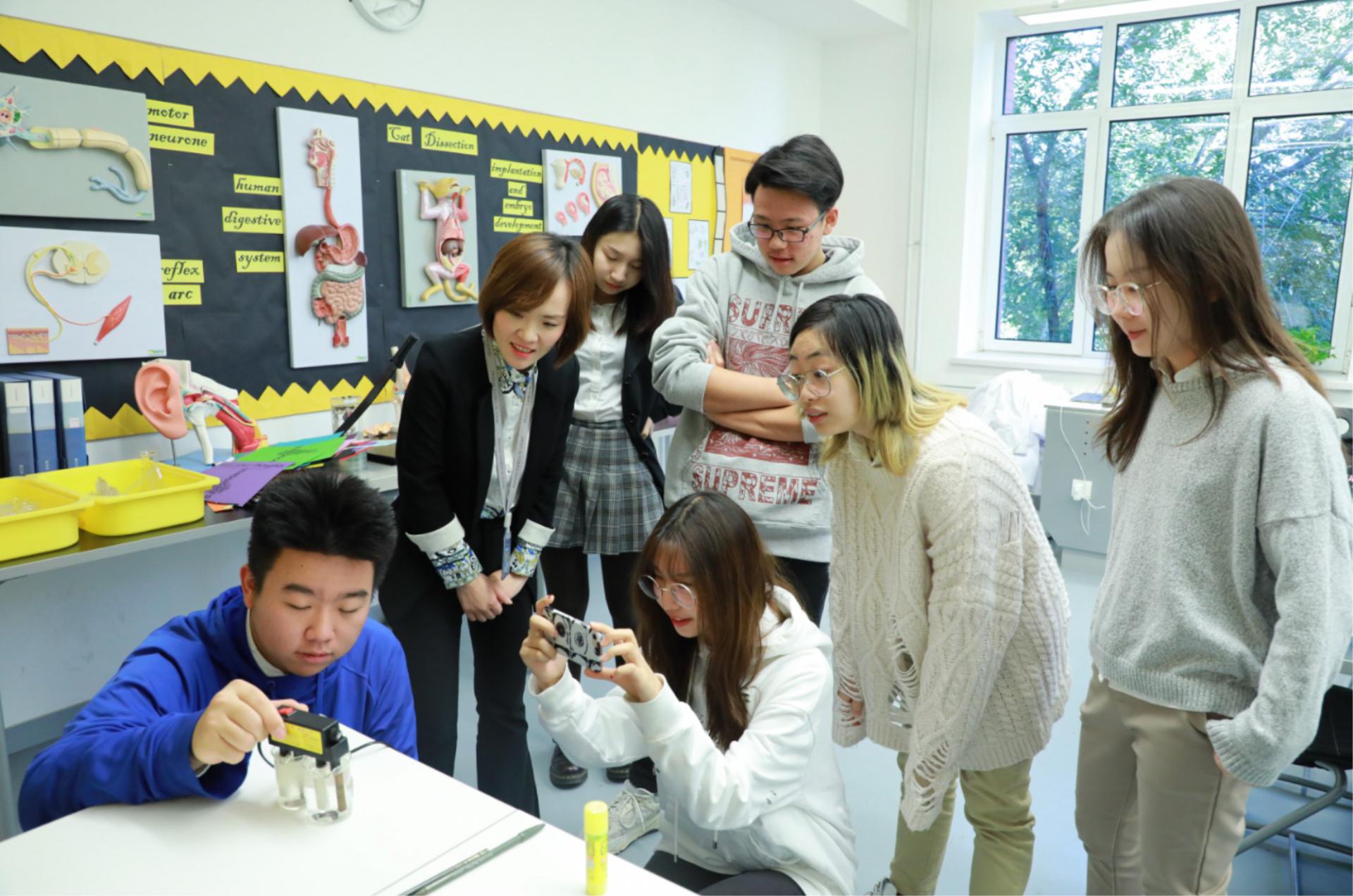
On the afternoon of November 7, 2019, science teacher Xena Liu and art teacher Elizabeth Lasure of Kaiwen Academy led some of the 11th grade students to Beixiaohe Reclaimed Water Plant affiliated to Beijing Drainage Group for a different cross-disciplinary lesson. The visitors learnt about functions of buildings within the plant and operation status of production equipment, especially daily operation of sewage treatment facilities.
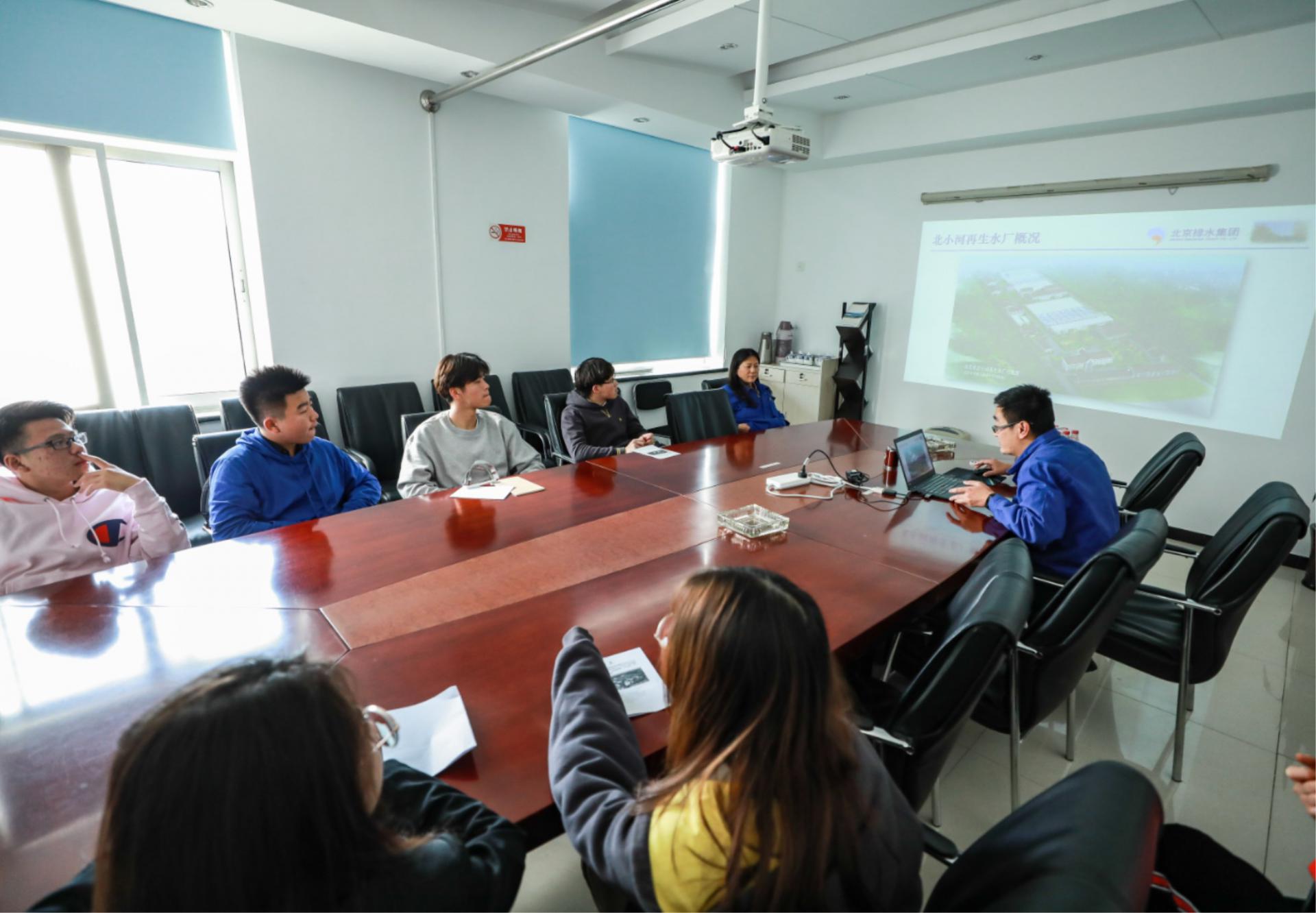
“Beixiaohe Reclaimed Water Plant was set up in 1989 in support for the Beijing Asian Games, upgraded with an addition of 60,000t membrane bio-reactor (MBR) in 2008 in preparations for the Olympic Games, and renovated with 40,000t MBR in 2012. It serves a total area of 21km² and treats 100,000 m³/d sewage altogether, and is divided into 60,000t MBR system and 40,000t MBR system…” As the guide introduced, the teachers and students of Kaiwen preliminarily understood the configuration of the plant.
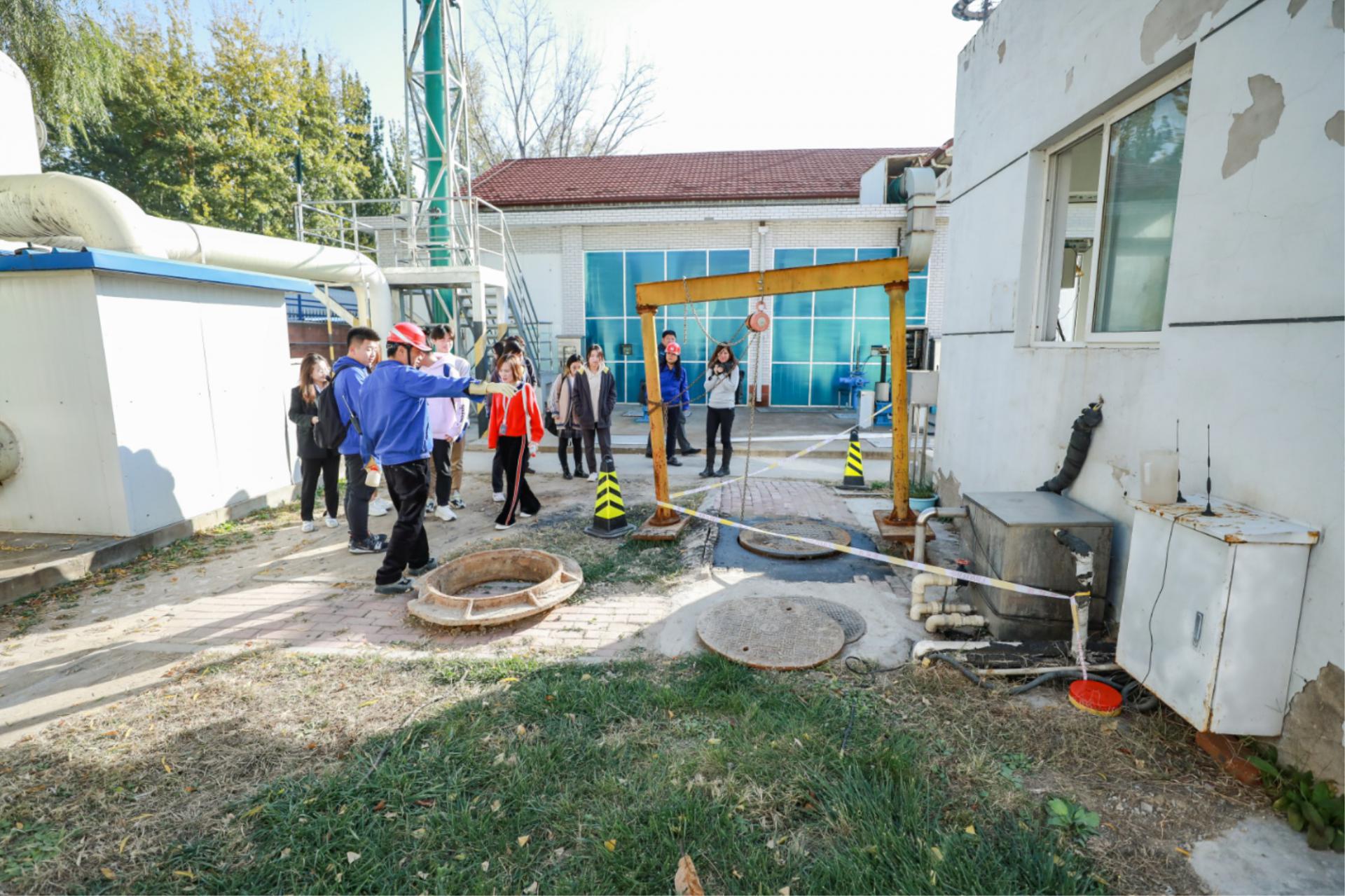
Following the professional guidance, the teachers and students paid a field visit to the production workshop, where they learnt about sewage purification equipment and specific operation, were updated on some water treatment technologies such as MBR and simultaneous nitrogen and phosphorus removal in biological tank, and were assisted by staff members to collect water samples. Signs on safe production were everywhere in the workshop and being there, the students realized the importance of a rigorous scientific attitude for science and technology practitioners.
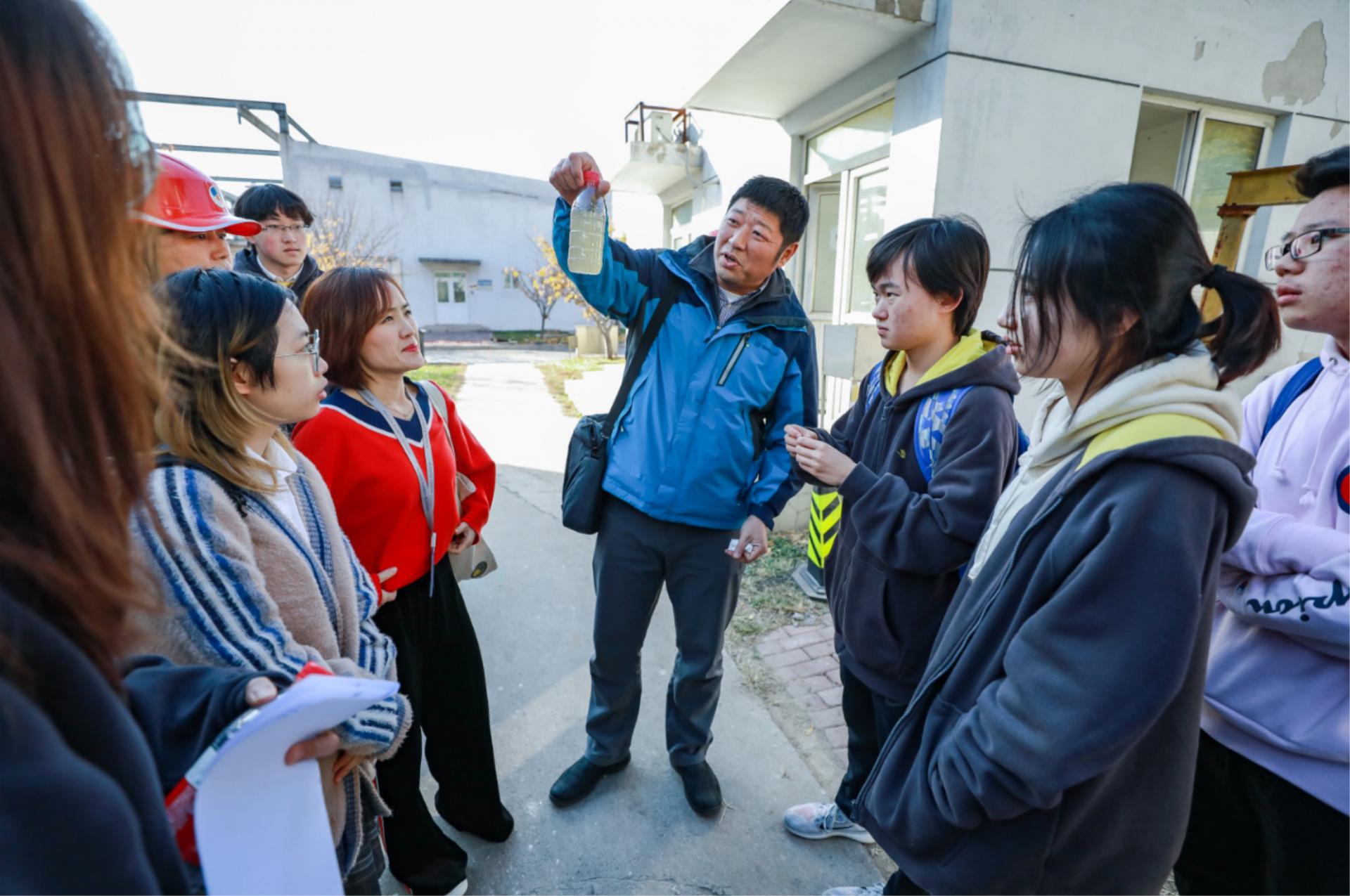
Grills are the first step for sewage influent into the plant to go through and they are used to intercept solid waste. Following this, harmful substances in the sewage are removed by precipitation, purification and bio-treatment. Next, the sewage flows into the secondary precipitation tank for the second time of precipitation and purification. With the treatment process for reclaimed water, murky inflows into the plant are turned into clean reclaimed water in the membrane workshop. As the second largest water source in Beijing, reclaimed water is widely applied in industry, agricultural irrigation, urban greening, road cleaning, car washing and urban fountains.
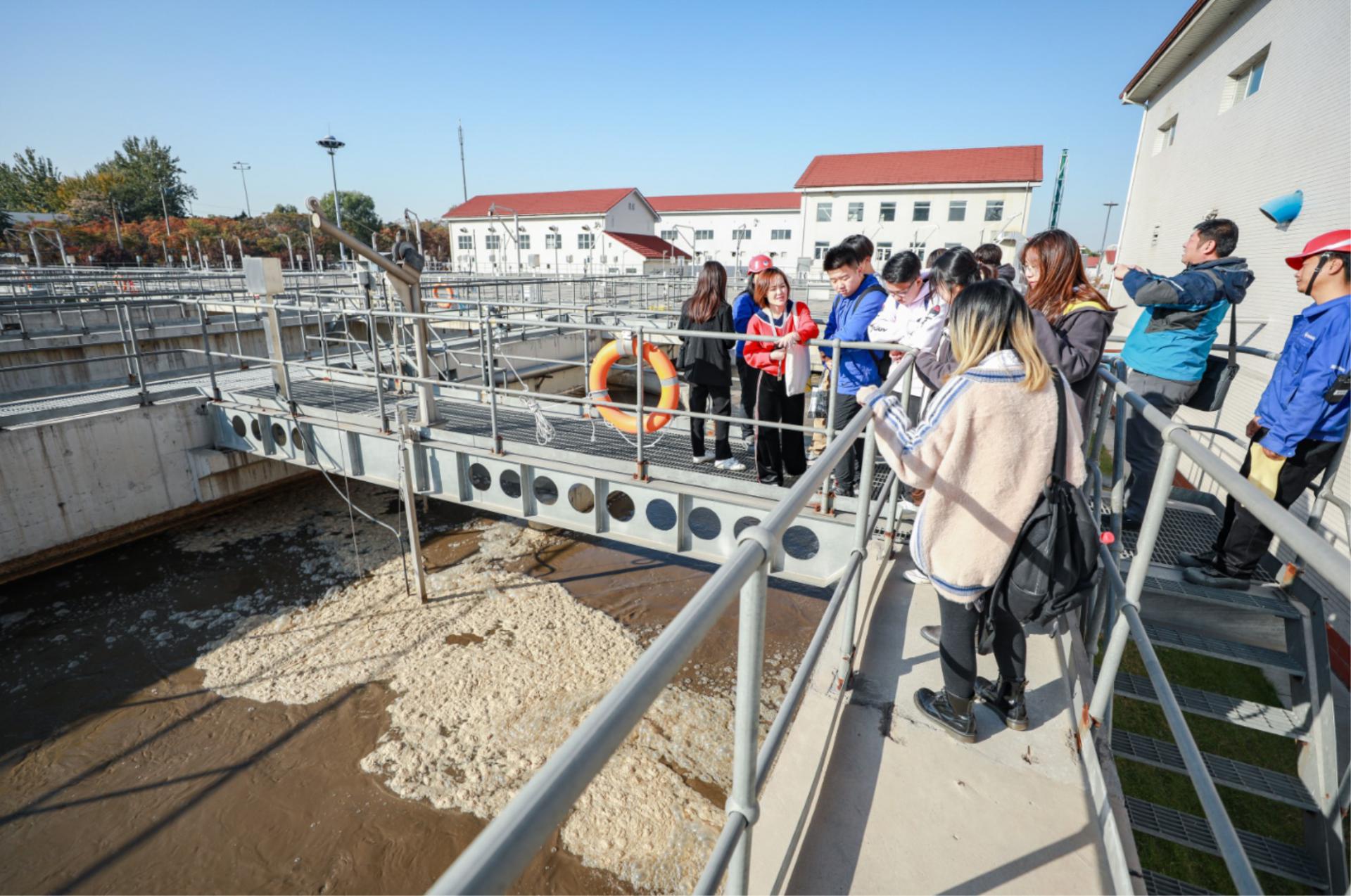
Thanks to the visit, Kaiwen students not only learnt about the process flow and working principles of urban sewage treatment as well as information on water resources in Beijing, but also combined knowledge on geography, physics, chemistry and biology with real life, which deepened their understanding on theoretical knowledge and enhanced their awareness of saving and conserving water.
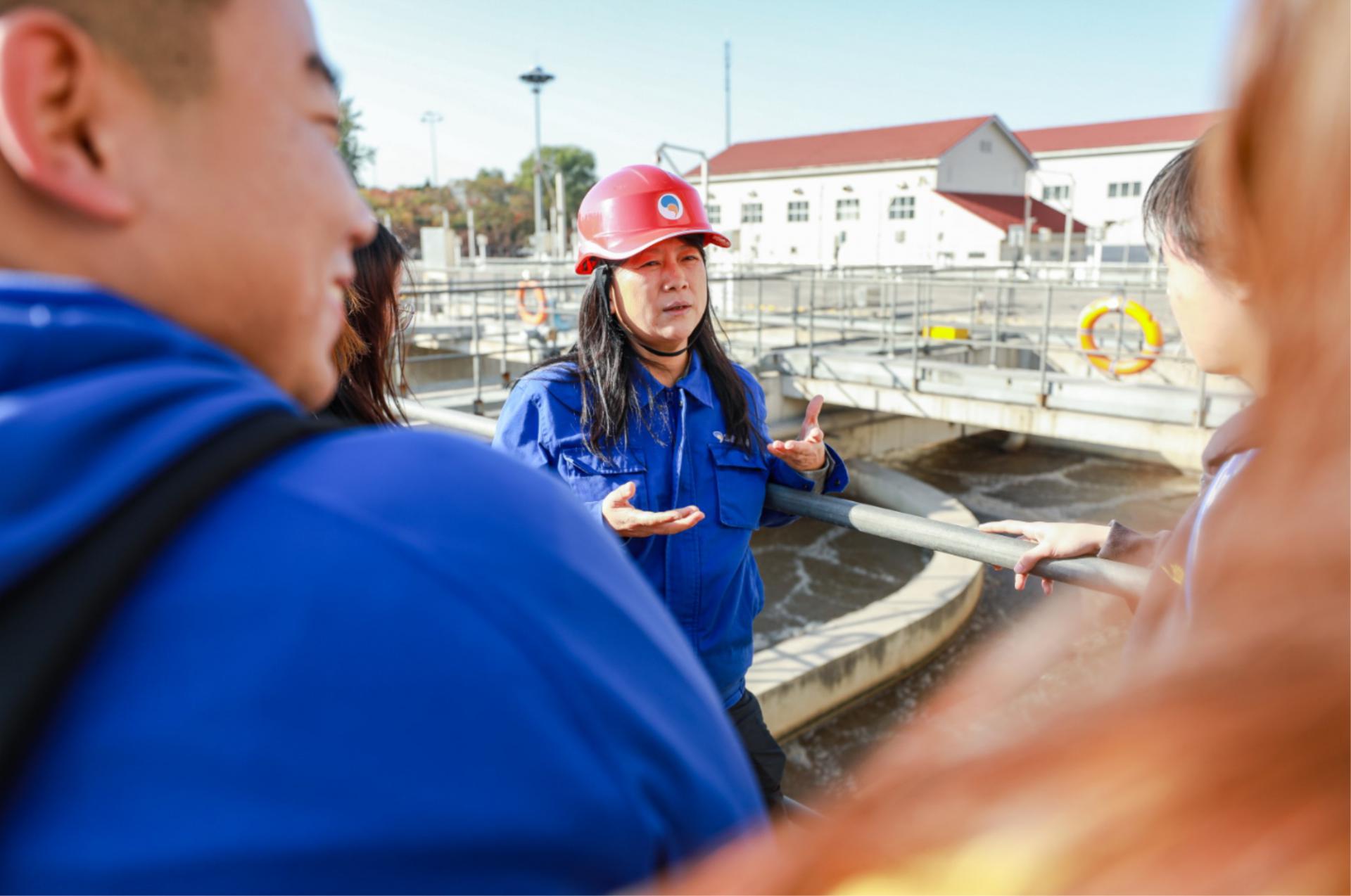
Meanwhile, the students expressed sincere admiration and respect for staff of reclaimed water plants. It’s because of their persistence at work that water pollution treatment, water conservation and ecological balance in Beijing are ensured and the water environment in our home city is improved.
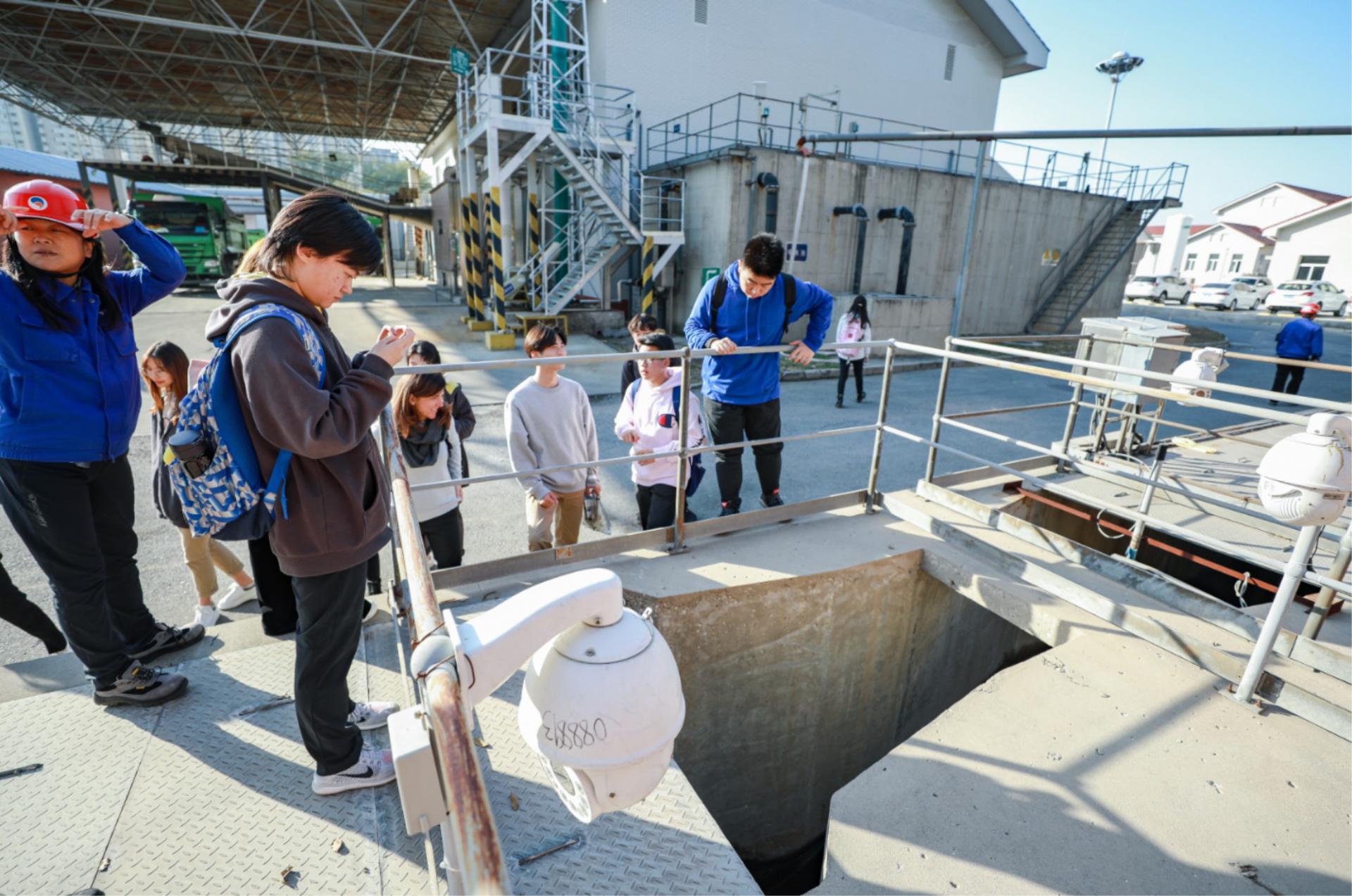
As the initiator of the “Dirty Water Project” PBL, the 11th grade students will act as “Campus Environment Ambassador” of Kaiwen Academy and put into full play their leadership and influence. They will join hands with Earth Protection Association and Students’ Union of the school to constantly popularize environmental knowledge and guide teachers and students to reduce pollution. The project will be sustained to involve more Kaiwen students, form an environmental-friendly community and contribute to improved environment in the community and society.